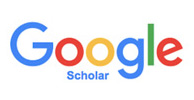![]() Journal Search Engine
Journal Search Engine
ISSN : 1226-4822(Print)
The Sociolinguistic Journal of Korea Vol.28 No.4 pp.131-154
DOI : http://dx.doi.org/10.14353/sjk.2020.28.4.05
DOI : http://dx.doi.org/10.14353/sjk.2020.28.4.05
Research progress of language attitudes in the field of sociolinguistics and proposal for future research projects
Abstract
This paper analyzes the research progress of language attitudes in the field of sociolinguistics and proposes future research projects. First, the research progress of language attitudes can be categorized into four groups; attitudes to the language itself, attitudes to language variation, attitudes to language use, and attitudes to language identity.
Research about attitudes to the language itself is peculiar in that big scale surveys were conducted by the government for linguistic policies. Quantitative survey method is preferable when providing the results in figures. However, it is unsuitable when analyzing the results in depth. Therefore, qualitative research entailed with various research methods is necessary.
Research on attitudes toward language variation should be promoted considering the fast speed of linguistic change of the Korean language. So far most studies were about umlaut, euphony, grammatical change in stem and ending. Nevertheless, further studies should expand the research horizon to different linguistic units such as intonation, discourse markers, etc.
Research on attitudes toward language use shows the possibility of extending the scope of the field of sociolinguistics. Especially study on anthroponym, commercials, brand names, copies, political slogans should not only be done on language attitudes but also on sociolinguistic respects.
Lastly, research on language attitudes of minority groups focused on Korean migrants to Japan(Korean residents in Japan), former Soviet Union(Russian Koreans), and China(Korean-Chinese). However, at present Korea is a multicultural society which implicates that future studies should pay more attention on minority groups of different mother tongues for example immigrant workers, international students, temporary visitors, overseas Chinese, and foreigners who acquired Korean nationality, as well as North Korean defectors and migrant wives.
Research about attitudes to the language itself is peculiar in that big scale surveys were conducted by the government for linguistic policies. Quantitative survey method is preferable when providing the results in figures. However, it is unsuitable when analyzing the results in depth. Therefore, qualitative research entailed with various research methods is necessary.
Research on attitudes toward language variation should be promoted considering the fast speed of linguistic change of the Korean language. So far most studies were about umlaut, euphony, grammatical change in stem and ending. Nevertheless, further studies should expand the research horizon to different linguistic units such as intonation, discourse markers, etc.
Research on attitudes toward language use shows the possibility of extending the scope of the field of sociolinguistics. Especially study on anthroponym, commercials, brand names, copies, political slogans should not only be done on language attitudes but also on sociolinguistic respects.
Lastly, research on language attitudes of minority groups focused on Korean migrants to Japan(Korean residents in Japan), former Soviet Union(Russian Koreans), and China(Korean-Chinese). However, at present Korea is a multicultural society which implicates that future studies should pay more attention on minority groups of different mother tongues for example immigrant workers, international students, temporary visitors, overseas Chinese, and foreigners who acquired Korean nationality, as well as North Korean defectors and migrant wives.
언어태도에 대한 사회언어학적 연구의 성과와 과제
초록
Vol. 40 No. 4 (2022.12)

Frequency Published four times annually in March, June, September, and December
Doi Prefix 10.14353/sjk.
Year of Launching 1993
Publisher The Sociolinguistic Society of Korea



Online Submission
socioling.jams.or.kr
The Sociolinguistic
Society of Korea
socioling.com
Editorial Office Contact Information
- Tel: +81-10-3894-3164
- E-mail: schang@hoseo.edu






